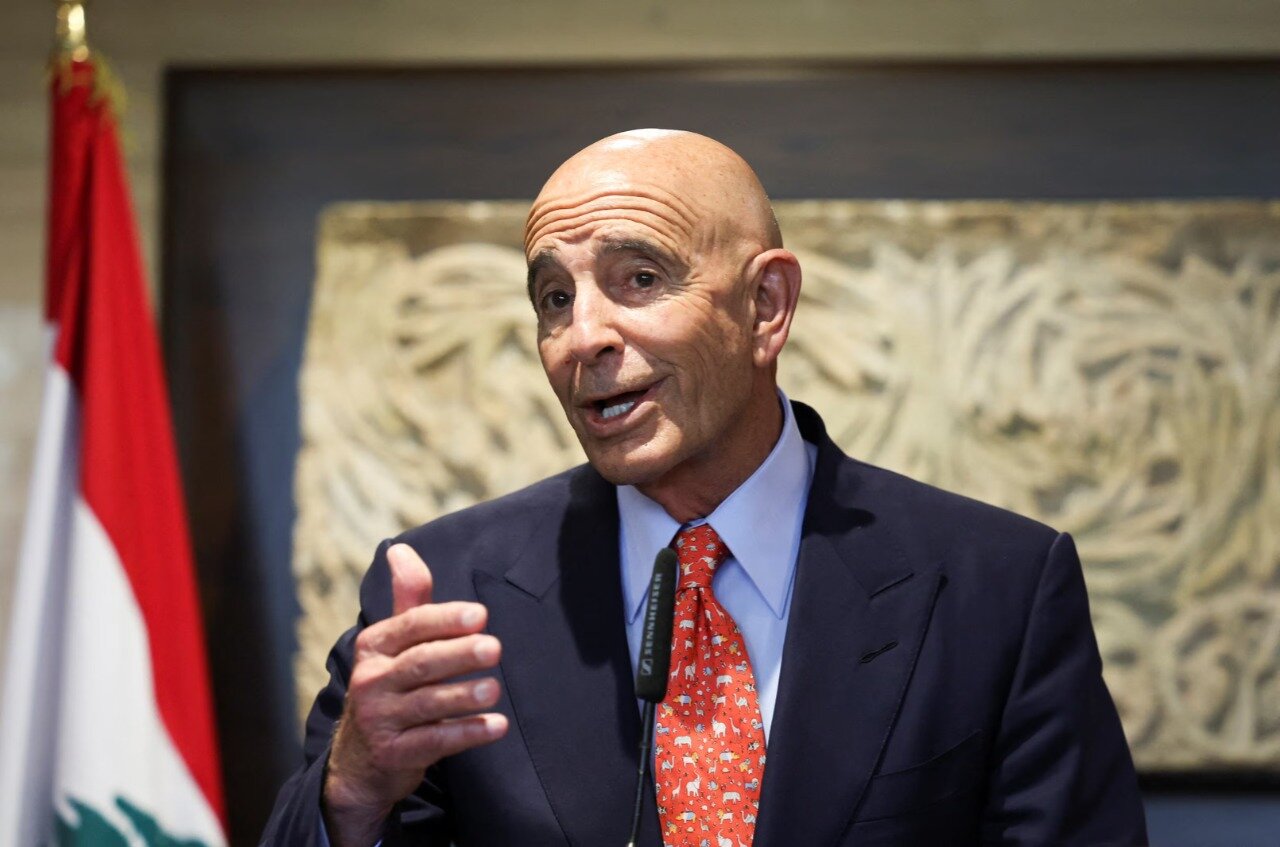US envoy Barrack threatens Lebanon
There is no guarantee to release Lebanese detainees in Israeli prisons

BEIRUT—Since his first visit to Beirut, US envoy Thomas Barrack has repeatedly gone around in circles. He proposed an alleged American “solution,” to which Lebanon responded by affirming its commitment to UN Resolution 1701 and prioritizing halting Israeli aggression, withdrawing from the occupied territories, and releasing Lebanese prisoners.
Meanwhile, Kan Radio revealed the existence of a secret, high-security wing inside Ayalon Prison, where Lebanese prisoners are held, along with Palestinian.
The secretive detention center, called Rakeft, was built underground and equipped with the latest surveillance technology and strict security measures.
According to the Hebrew radio, the guards are not identified by name, but use coded cards with numbers only, to protect their security and personal identities.
The Lebanese and Palestinian detainees languish inside these confinement cells, and are only allowed out for one hour a day, to a small, enclosed concrete yard with limited sunlight.
During that hour, contact or conversation between detainees is prohibited. Time is allocated for showering, cleaning, and walking.
Detainees are not allowed to leave the secret wing, even to meet with a lawyer, receive medical treatment, or attend court hearings.
On the wall is a large placard of the carpet-bombed Gaza entitled in Arabic: “New Gaza.”
Earlier this month, the Palestinian Prisoners’ Information Office documented shocking testimonies of systematic torture in Israeli prisons, including the direct use of police dogs to humiliate and physically harm detainees.
According to those whom he met, Thomas Barrack was “very strict,” reiterating that Hezbollah is a “terrorist organization” with which Washington does not negotiate.
Barrack explicitly declared Washington’s inability to provide the guarantees Lebanon is seeking, saying, “We cannot force Israel to do anything.”
Further, the U.S. envoy claimed that Washington is using its influence and leverage to reach a “solution,” but that the issue rests solely with the Lebanese government and political forces, who he claims are tired of “squabbling” and are seeking “understanding and peace with their neighbors.”
Barrack also threatened Lebanon, saying if the government does not make a unanimous decision to disarm Hezbollah as soon as possible, Washington “cannot impose anything on Israel and cannot prevent it from doing anything.”
In parallel with the US insistence on disarming the Resistance, Hezbollah persists in casting doubt on the US policy announcements. It describes US promises to help find a solution as “empty.”
Sources within the tripartite committee—comprising President Joseph Aoun, Parliament Speaker Nabih Berri, and Prime Minister Nawaf Salam—confirmed a shared commitment to prioritizing internal dialogue. As a matter of national interest, the officials agreed to sidestep detailed discussion of Barrack’s proposal, which, they argue, does not adequately confront the escalating Israeli threats.
In this context, the National Front for the Salvation of Lebanon (a coalition of Lebanese parties) warned the Lebanese government in a joint statement against submitting to Barrack’s pressures that “allowed Syria’s land and airspace to be penetrated by the Israeli enemy, and led to a devastating civil war, after the state lost all ability to protect civil peace and deter the enemy.”
The NFSL indicated that these facts “must be carefully examined so that the government does not follow the example of the new Syrian regime,” wondering: “If the circumstances in Lebanon are similar, or even identical, to those witnessed in Syria, will the outcome here be different from the outcome there?”
The NFSL added: “It is not the resistance that is preventing the establishment of the state in Lebanon. Quite the contrary, it was the absence of the state and its refusal to fulfill its duty to protect the homeland that forced the people to establish the resistance in light of the aggression, killing, destruction, and displacement they are subjected to at the hands of the Israeli enemy.”
It concluded its statement: “Those who want to resolve the exclusivity of arms to the state, if they are sincere, must resolve the problem of building the state, not demand the destruction of the resistance, which constitutes the only guarantee to deter the enemy and prevent Lebanon from being dragged into a devastating civil war.”
Leave a Comment